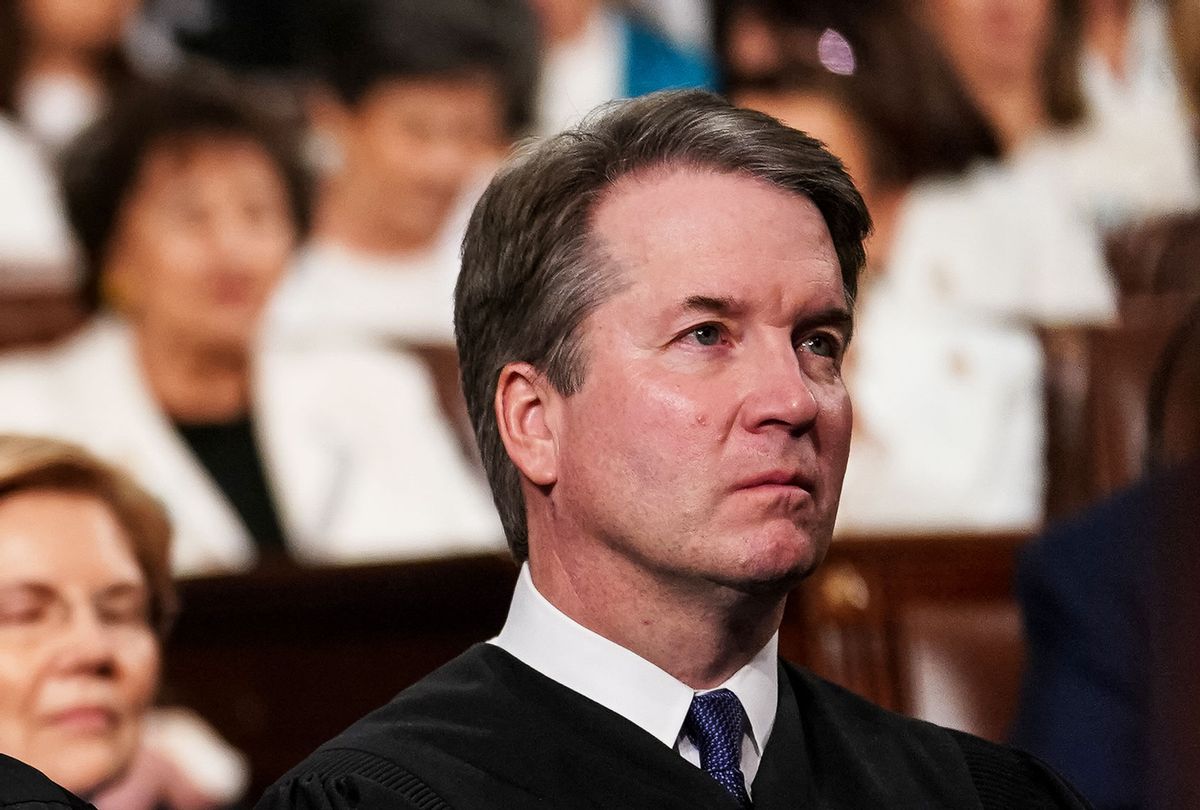Millions of Americans are at risk of eviction and homelessness after the Supreme Court blocked the Biden administration's eviction ban extension on Thursday.
The court issued an unsigned eight-page opinion saying the Centers for Disease Control and Prevention exceeded their authority by issuing an eviction moratorium extension, which was aimed at areas with "substantial" COVID spread.
"It would be one thing if Congress had specifically authorized the action that the CDC has taken. But that has not happened," the opinion said. "Instead, the CDC has imposed a nationwide moratorium on evictions in reliance on a decades-old statute that authorizes it to implement measures like fumigation and pest extermination. It strains credulity to believe that this statute grants the CDC the sweeping authority that it asserts."
The court said "if a federally imposed eviction moratorium is to continue, Congress must specifically authorize it."
The court's three liberals dissented.
Want a daily wrap-up of all the news and commentary Salon has to offer? Subscribe to our morning newsletter, Crash Course.
"The CDC targets only those people who have nowhere else to live, in areas with dangerous levels of community transmission," Justice Stephen Breyer wrote in a dissent joined by Justices Sonia Sotomayor and Elena Kagan. "These people may end up with relatives, in shelters, or seeking beds in other congregant facilities where the doubly contagious Delta variant threatens to spread quickly."
The opinion was part of the court's "shadow docket," where the justices hand down largely unsigned short opinions without going through standard hearings, deliberations, and transparency. Such cases had been mostly limited to uncontroversial petitions or rare emergencies but the shadow docket has dramatically grown under the increasingly conservative Supreme Court, alarming legal experts. "If (the justices) can make significant decisions without giving any reasons, then there's really no limit to what they can do," David Cole, the legal director of the American Civil Liberties Union, told Reuters.
Breyer in his dissent argued that the questions about the eviction moratorium were too big for the shadow docket.
"These questions call for considered decisionmaking, informed by full briefing and argument," he wrote. "Their answers impact the health of millions. We should not set aside the CDC's eviction moratorium in this summary proceeding. The criteria for granting the emergency application are not met."
The court's ruling effectively allows eviction proceedings to resume, putting more than 7 million Americans who have fallen behind on rent at risk.
The Trump administration first issued the ban last September after Congress failed to extend the moratorium included in the first round of pandemic relief. The Supreme Court allowed the moratorium to continue in June after conservative Justice Brett Kavanaugh, the deciding fifth vote, said the CDC likely exceeded its authority but let the ban stay because it was set to expire last month. The Biden administration planned to let the ban expire before calling on Congress to extend it amid pressure from lawmakers. House moderates ultimately killed a last-minute effort to pass an eviction ban, which would have been doomed in the Senate regardless, prompting the CDC to issue a revised extension more tailored to areas hardest hit by COVID. Biden acknowledged at the time that the extension may not hold up but "by the time it gets litigated, it will probably give some additional time while we're getting that $45 billion out to people who are, in fact, behind in the rent and don't have the money."
But the distribution of rental assistance has been woefully slow. Congress approved $46 billion in rental aid since December but just $5.1 billion was distributed through July, according to the Treasury Department. With only 11% of the funds distributed, the federal government has tried to pressure state and local officials to move faster and issued new rules to make it easier for applicants to seek aid. But many state and local governments have struggled to set up a system to distribute the funds and some landlords have balked at accepting the aid because it requires them to agree not to evict the tenant for another year.
The eviction ban has provided a lifeline to struggling families since the pandemic began.
"Over the last 11 months, while this eviction moratorium has been in place, we estimate that there have been at least 1.5 million fewer eviction cases than normal," Peter Hepburn of the Princeton University Eviction Lab told NPR. "This has really helped to keep an extraordinary number of families in their homes."
Want a daily wrap-up of all the news and commentary Salon has to offer? Subscribe to our morning newsletter, Crash Course.
The Biden administration said it is "disappointed" in the Supreme Court's ruling.
"As a result of this ruling, families will face the painful impact of evictions, and communities across the country will face greater risk of exposure to COVID-19," White House press secretary Jen Psaki said.
Rep. Cori Bush, D-Mo., who slept on the Capitol steps earlier this month to protest the expiration of the earlier moratorium, said the court "failed to protect" millions of people from "violent eviction in the middle of a global pandemic" and again called on Congress to act.
"We already know who is going to bear the brunt of this disastrous decision," she said, "Black and brown communities, and especially Black women."



Shares